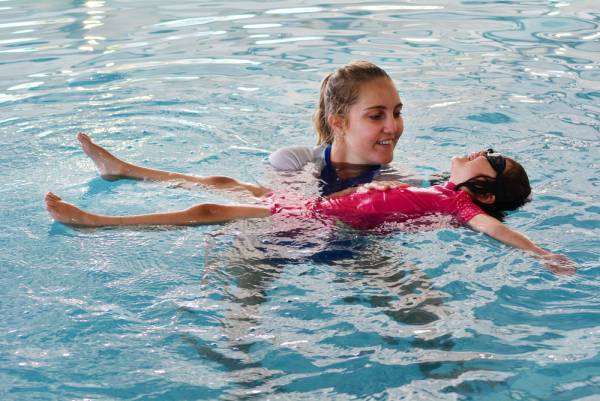Spring sports have just started and many athletes will be returning to their local teams with the same teammates and same coaches. But what happens when your child has outgrown his or her coach?
This article will explore why youth athletes outgrow their coach, signs that a youth athlete needs to move on, and how to help that athlete transition to a new team.
Spring sports have just started and many athletes will be returning to their local teams with the same teammates and same coaches. But what happens when your child has outgrown his or her coach?
This article will explore why youth athletes outgrow their coach, signs that a youth athlete needs to move on, and how to help that athlete transition to a new team.
When Is It Time to Move On?
There are many reasons a youth athlete might outgrow a coach, and it is not necessarily a slight on the coach. Most times, your child’s advancement signifies the coach has done his or her job correctly. When your child is on a developmental team to learn the basic skills and rules of the game, it is understood the child will move to a different team, once he or she advances in the game.
As well, not every coach has advanced sports skills or can teach advanced sports skills. This is okay. Once the coach has reached his or her coaching capacity, and your child has learned all he or she can, it’s time to move on. These are all positive and expected signs of development in sports performance.
Finding the Next Great Coach
Outgrowing a coach is not necessarily a bad thing, yet many parents and athletes stay with a coach out of a misplaced sense of loyalty to the coach or for fear of hurting the coach’s feelings. I am always incredulous when I hear parents make comments like this, and when asked, I offer this: Is playing the sport about the coach or is playing the sport about your child?
“Most times, your child’s advancement signifies the coach has done his or her job correctly.”
Outgrowing a coach is not about loyalty or the coach’s feelings. It is about finding the right coach for each developmental stage in your child’s sports career. It is about optimizing the performance of your youth athlete.
Stopping a Negative Situation
What happens when your child is in a negative coaching situation? What if the coach is “fun,” but your child is serious about the game?
We live in Wisconsin. The winters are very cold. One early and very cold Saturday morning (negative 25 degrees with wind chill), I took my son to his indoor baseball practice. No one was there to open the doors. Boys had been dropped off and were waiting outside the facility in the cold. The coach, and owner of the facility, showed up 25 minutes late, looking hung over and drinking his Starbucks coffee. Obviously, these kids cared more about practice than the coach – it’s time for a new coach.

In hindsight, it is easy to read the signs of outgrowing a coach, but let’s save ourselves and our children the pain of playing where they no longer fit. Allegra Sinclair, a life coach who specializes in confidence training, has identified several key areas that indicate your child may need to find a new coach:
- Your child needs less and less advice on his or her performance. If your child is no longer asking the coach for advice or if your child is not receiving constructive feedback, then it’s time for a new coach.
- Your coach no longer has advice to give. When your child asks for advice from the coach and the coach can no longer answer or address your child’s concerns, it’s time for a new coach.
- Your child has reached a higher performance level than the coach can teach. The coach was successful in leading your child to a new level, but cannot develop your child’s performance further. This is not a slight on the coach, but rather a success for both the coach and the athlete. It’s time for a new coach.
- Your child is confident on his or her own. Your child feels completely confident and rarely considers the coach when making decisions during practice or competition. It is time to challenge your child’s sports performance and it’s time for a new coach.
- You and your child no longer click with the coach. You and your child have a different vision than the coach, and the coach can no longer provide your child with the skills necessary for optimal sports growth. It’s time to move to a new coach.
“We are talking about your child’s need for more from a coach.”
Identifying the signs for outgrowing a coach and making the decision to change coaches can still be tricky for youth athletes. On his blog Coach Up, writer Kevin Duy agrees that it is a normal developmental process for youth athletes to move to a new coach. He offers these suggestions to help ease your child’s transition to a new coach:
- Remind your child that growth occurs outside of comfort zones. Sports growth often comes through mistakes and competitive challenges. Let your child experience that growth with athletes who challenge him or her.
- Give your child the opportunity to rise to the challenge. Is your child complacent in drills, techniques, and games because he or she is the best player on the team? It is okay to place your child on a team where he or she is not the best player, but through practice, can match the team’s skills and techniques. Not only will your child learn more about the game, but will also begin to discover his or her athletic potential – mentally and physically.
- Improvement begins with desire. Before moving to another coach, two important questions need to be asked. Does your child want to improve his or her skill sets and advance performance? And does your child want to move to a new coach? If you desire these outcomes for your child, but your child does not, then finding a new coach will not matter.
- Is your child a leader on the team? The athlete who is looked up to and depended upon from the coach and from teammates, and who often leads stretches and warm ups, is usually the strongest player. This is fine, as long as the athlete is still improving in his or her game. A common mistake that parents make is seeing leadership as a sports skill progression. Leadership and skill progression are two different entities. Don’t mistake leadership with advancing skill or sport.

Why Moving On Is Good
While some coaches, parents, or teammates might be offended that your youth athlete has moved to a new coach, it is actually a good sign. We are not talking about bad coaches or transactional coaches in this article. We are talking about your child’s need for more from a coach. More skills, more techniques, more development, and more challenges to optimize his or her performance. These are all positive assurances that your child is developing to his or her athletic potential, that the coach has done his or her job, and that you are actively engaged in your child’s sports development.
You’ll also enjoy:
- 5 Unconventional Tips for Coaching Kids
- Kids Are Fatter, Sicker, and Slower – What Can We Do About It?
- How Parents Can Best Support Their Kids in Athletics
References:
1. Duy, Kevin. “How Do You Know When Your Child Has Outgrown His Team?”. October 10, 2013. Accessed March 22, 2015.
2. Sinclair, Allegra. “How to Know When You Have Outgrown Your Mentor” June 19, 2012. Accessed March 22, 2015.
Photos courtesy of Shutterstock.






